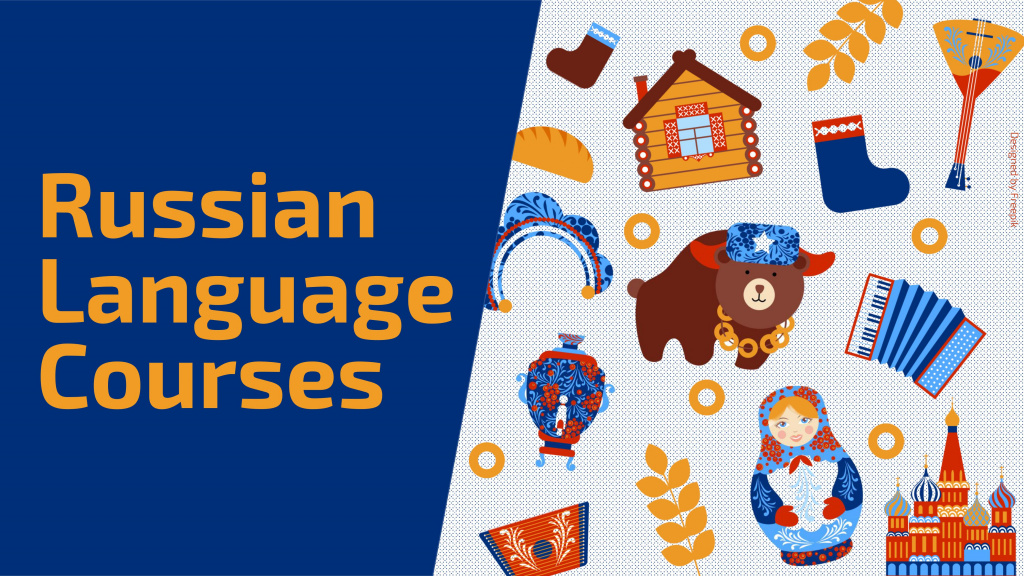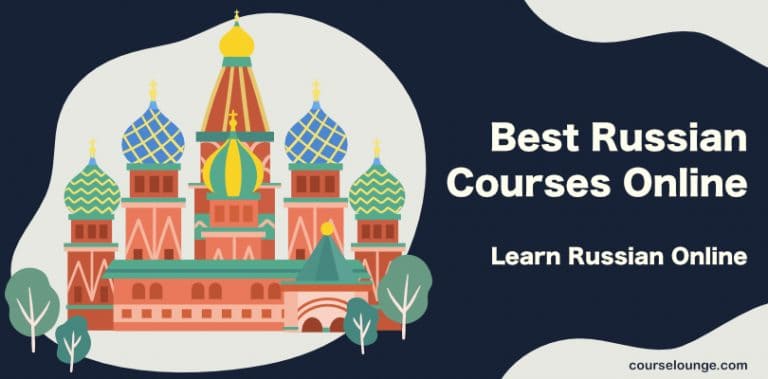My Grand Adventure: Taking a Russian Course and Falling in Love with a Language
Hey there! If you’re reading this, chances are you’ve got a little spark of curiosity about the Russian language, maybe even a tiny flutter in your stomach about taking a Russian course. And let me tell you, that’s exactly where I was not too long ago. I’m just a regular person, no linguistic genius, who decided to dive headfirst into learning Russian, and I want to tell you all about it – the good, the challenging, and the utterly rewarding.
So, grab a cup of tea (or kvass, if you’re feeling adventurous!), settle in, and let me share my story.
The Whisper of Russia: Why I Took the Plunge
For years, Russia felt like a faraway land, a place of grand literature, dramatic history, and incredibly beautiful, yet intimidating, sounds. I’d read Dostoyevsky in translation, listened to Tchaikovsky, and always felt a pull towards understanding more. But the language? That Cyrillic alphabet looked like a secret code, and the grammar… well, tales of its complexity often preceded it.
My turning point wasn’t a grand epiphany, but more of a gentle nudge. A friend, who had just returned from a trip to St. Petersburg, gushed about her experiences, even managing a few basic Russian phrases. That’s when it hit me: why not me? Why not try a Russian course? It wasn’t about becoming fluent overnight or moving to Moscow; it was about opening a new window to the world, one syllable at a time.
I remember the day I signed up for my first beginner Russian course online. My heart was thumping a little. It felt like stepping onto a path with no clear end, but with the promise of incredible sights along the way.
First Steps: Taming the Cyrillic Alphabet (It’s Not a Monster, I Promise!)
The very first hurdle for anyone starting to learn Russian is, without a doubt, the Cyrillic alphabet. Let’s be honest, it looks daunting. Some letters look familiar but sound different (like ‘P’ sounding like ‘R’), some look completely alien, and some are just… well, they’re just there!
When my instructor first put up the slide with all 33 letters, my brain did a little flip. "How will I ever remember all of these?" I thought. But here’s the secret: it’s not as hard as it looks. Think of it like learning a new font. Seriously.
Our teacher broke it down beautifully. We learned a few letters each class, practiced writing them, and most importantly, sounded them out. Suddenly, ‘Я’ wasn’t a backwards ‘R’; it was "ya." ‘Д’ wasn’t a house; it was "d." And ‘Ж’ became that cool "zh" sound from "pleasure."
My Tip for the Alphabet: Don’t try to memorize it all at once. Focus on chunks. Use flashcards. Write things down by hand – it really helps your brain connect the shape to the sound. And don’t be afraid to sound silly. My biggest breakthrough was realizing that once you conquer Cyrillic, you can read street signs, menus, and even simple articles. That feeling of recognition is pure magic.
Diving Deeper: Grammar, Cases, and Those Tricky Verbs
Alright, let’s talk about the elephant in the room: Russian grammar. Yes, it has a reputation. And yes, it can be challenging. But it’s also incredibly logical once you start to get the hang of it.
The biggest difference for me, coming from English, was the concept of cases. In Russian, nouns, adjectives, and pronouns change their endings depending on their role in a sentence (who is doing what to whom, where something is, etc.). There are six of them, and for a while, they felt like six different monsters, each with its own set of rules.
My early days in the Russian course were filled with sentences like:
- "Я читаю книгу." (I read a book – knyigu is the accusative case)
- "Я иду в магазин." (I go to the store – magazin is still accusative, but for direction)
- "Я живу в Москве." (I live in Moscow – Moskve is the prepositional case)
It felt like juggling. But our teacher was brilliant. Instead of overwhelming us with all six cases at once, we learned them gradually, focusing on practical usage. We’d learn the nominative (the basic form) and then immediately apply the accusative case when talking about direct objects or destinations. Then came the dative for giving things, the genitive for possession, and so on.
My Tip for Grammar: Don’t chase perfection. Focus on understanding the concept of cases and then practice, practice, practice. Repetition is your best friend. Make flashcards for common endings, do drills, and try to build simple sentences using the cases you know. It’s like building with LEGOs – you start with basic blocks and then slowly add more complex pieces.
Then there are verbs. Oh, the Russian verbs! They have two aspects: imperfective (for ongoing or repeated actions) and perfective (for completed actions). This was another mind-bender, but again, it boils down to practice and exposure. You learn to instinctively choose the right one over time. My teacher would often say, "Don’t overthink it at first, just try to get the gist, and we’ll refine it later." That advice was golden.
Finding My Voice: Speaking and Listening Practice
Taking a Russian course isn’t just about memorizing rules; it’s about actually using the language. This was the part that initially made me nervous. What if I sounded silly? What if I made mistakes?
Our course emphasized speaking from day one. Even with just a few words, we were encouraged to introduce ourselves, ask simple questions, and try to answer. The classroom was a safe space for errors, and that was crucial.
We did a lot of role-playing: ordering coffee, asking for directions, introducing family members. It felt a bit awkward at first, but with each attempt, my confidence grew.
My Tip for Speaking & Listening:
- Embrace Mistakes: They are part of learning. Every wrong verb ending or misplaced stress is a step closer to getting it right.
- Find a Language Partner: Even if it’s just for 15 minutes a week, talking to a native speaker or another learner outside of class is incredibly valuable. There are many online platforms for this.
- Immerse Yourself (Even a Little): Change your phone language to Russian for a few days, watch Russian cartoons (seriously, they’re great for beginners!), listen to Russian music, or try watching a simple Russian movie with subtitles. My personal favorite was "Masha and the Bear" – simple dialogues and adorable characters!
- Listen Actively: Try to pick out words you know, even if you don’t understand the whole sentence. Your ears need training just as much as your tongue.
Beyond the Textbook: Cultural Immersion and Staying Motivated
A Russian course isn’t just about the words; it’s about connecting with a rich, vibrant culture. Our teacher would often share anecdotes about Russian life, traditions, and history, which made the language feel even more alive.
Learning Russian opened doors to understanding the nuances of Russian literature in a way translations couldn’t fully capture. It made me appreciate the complexity of their history and the warmth of their people even more.
My Tip for Motivation:
- Set Small Goals: Don’t aim for fluency in a month. Aim to learn 10 new words this week, or to understand a simple Russian song.
- Celebrate Small Wins: The first time you successfully order food in Russian (even if it’s just "kofe, pozhaluysta" – coffee, please), it feels like a monumental achievement. Acknowledge that!
- Connect with Your Interests: If you love cooking, find Russian recipes. If you love history, watch documentaries about Russian history. Make the language relevant to your life.
- Be Patient with Yourself: There will be days when you feel like you’re not making progress. That’s normal. Take a break, come back refreshed, and remember why you started.
Choosing Your Path: Finding the Right Russian Course for You
My journey started with an online group course, and it was perfect for me at the time. But there are so many ways to learn, and finding the right Russian course is key to your success.
Here are some things to consider when looking for a Russian course:
- Online vs. In-Person:
- Online: Offers flexibility, often more affordable, and access to teachers worldwide. Great if you have a busy schedule or live far from a language school. Look for platforms with live instructors and interactive lessons.
- In-Person: Provides a structured environment, direct interaction with classmates, and often more hands-on activities. Can be great for accountability and immediate feedback.
- Group vs. Private Lessons:
- Group: More affordable, great for practicing with peers, and builds a sense of community.
- Private: Tailored to your pace and specific needs, allowing for faster progress on areas you find challenging. More expensive but highly effective.
- Teacher’s Methodology: Does the teacher focus on grammar, conversation, or a balance? Do they use engaging materials? Read reviews and, if possible, try a trial lesson.
- Course Structure: Is it beginner-friendly? Does it progress logically? Does it include cultural insights?
- Cost and Time Commitment: Be realistic about what you can afford and how much time you can dedicate each week. Consistency is more important than intensity.
- Reviews and Recommendations: What do other students say? Word-of-mouth or online reviews can be very helpful.
Whether you’re looking for an intensive Russian language course to prepare for travel, a casual beginner Russian course to satisfy your curiosity, or online Russian lessons to fit into your busy life, there’s an option out there for you. Don’t be afraid to try different things until you find what clicks.
Your Russian Adventure Awaits!
My journey with Russian is far from over. I’m still learning, still making mistakes, and still discovering new facets of this incredible language and culture. But looking back, taking that first Russian course was one of the best decisions I’ve made. It opened my mind, challenged me in new ways, and connected me to a part of the world I previously only admired from a distance.
If that little spark of curiosity is still there, I wholeheartedly encourage you to take the plunge. Don’t let the Cyrillic or the cases intimidate you. Start with a beginner Russian course, find a good teacher, and just take that first step.
You don’t need to be a linguist to learn Russian. You just need a bit of curiosity, a willingness to try, and the patience to enjoy the journey. Who knows what amazing stories you’ll have to tell once you start speaking this beautiful language?
Go on, your Russian adventure is calling!



